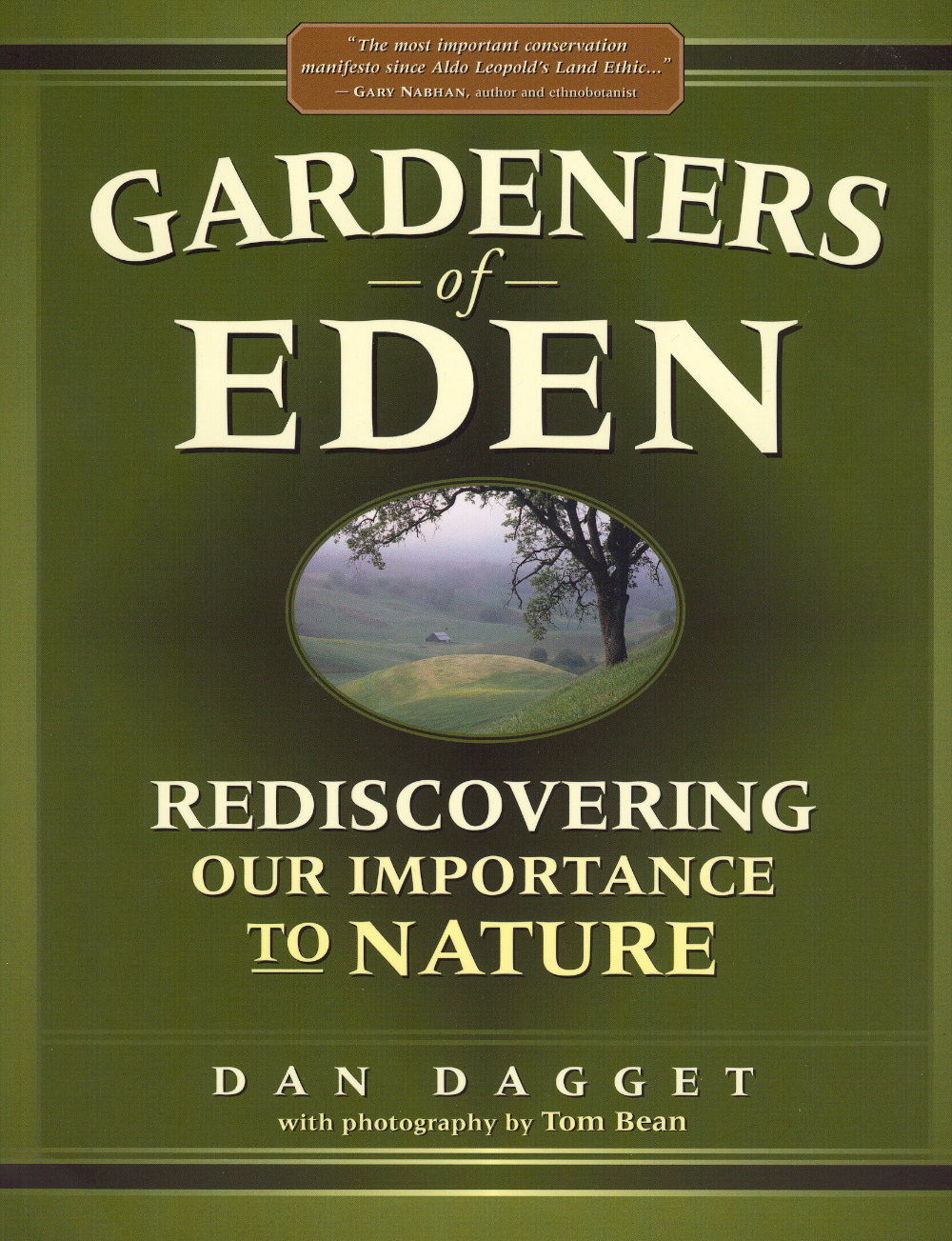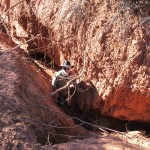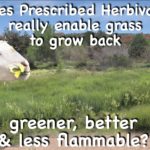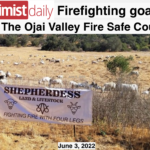
Gardeners of Eden, Rediscovering Our Importance to Nature by Dan Dagget

From Leah Bee:
The first notable point of inspiration beaming out of Dan Dagget’s Gardeners of Eden, says Leah Bee, farmer, writer, musician, environmentalist, Earth lover, wildling, is this idea that we, all of us, can actually work together to actively create the beautiful earth we all long for — that wildcrafters, hunters, environmentalists, tree huggers, farmers and ranchers all can unite in a field of cooperation for the sake of making amends to the earth we have so deeply misunderstood, on all sides.
This book inspires a feeling of responsibility that actually gives hope to a somewhat endlessly hopeless narrative about our wild lands and our impact on them. Given the heavy history of how we got to where we are today, it feels appropriate and correct that it is going to take some effort on our part to restore the wetlands, wildlands, prairie lands and watersheds. It feels right that we actually have to DO something to restore the beauty of these ecosystems, rather than just stepping back to “leave it alone”, or “conserve it” and hope it all just fixes itself.
This book inspires a feeling of responsibility that actually gives hope to a somewhat endlessly hopeless narrative about our wild lands and our impact on them. Given the heavy history of how we got to where we are today, it feels appropriate and correct that it is going to take some effort on our part to restore the wetlands, wildlands, prairie lands and watersheds. It feels right that we actually have to DO something to restore the beauty of these ecosystems, rather than just stepping back to “leave it alone”, or “conserve it” and hope it all just fixes itself.
The “leave it alone” theory is like coming into someone’s home, destroying their kitchen, killing some children, bulldozing the garden, polluting the well, gutting the house, and then realizing, oh, shit, that’s not the way to get what we want, let’s just walk away, leave it alone, put a federal fence around it and the horrified mess will all just heal itself up. That’s not how trauma heals. It’s almost as if the “leave it alone” idea is a big cop-out, a way of side stepping the many misguided and harmful steps it took to arrive at this degraded, desertified, monocultural earth we see today.
We need to stop observing the decrepit house we’ve looted and include ourselves in the process of its restoration, physically and spiritually. This is what is so striking about Dan’s book: he illuminates the fact that this idea that humans are a parasitic problem on earth is actually a continuation of the strange and deep conviction that we are not OF this earth. That we are separate. It subtly gives us permission to dissociate from our absolute dependence on earth for our life, as well as our ancient ancestral connection to the processes of this planet! The thing is, we ARE of this earth! We belong here, like the beaver, deer and hummingbird, and we can do our part, to benefit ourselves AND our ecosystems. First Nations peoples refer to this as remembering our Original Instructions. As long as we see ourselves as the alien race, we will continue to treat this earth as if it is not part of us, harming both ourselves and the earth in the process.
Humans are capable of cultivating biodiversity in such a way that feeds hundreds of other species. Here on the farm where I live, we have probably two dozen varieties of birds. We have snakes, frogs, lizards, insects and deer that benefit from our active participation in nature. Humans have always been part of the ecosystem; moving, digging, changing, harvesting, planting, cultivating, rifling through the foliage to find wild mushrooms. This earth has plenty for all of us, but in our estrangement from the elements, we have become convinced that we need industrial efforts to sustain our lives here. The simplicity is striking and empowering.
I feel empowered by this book, that we can quench our own thirst and longing for home by restoring our ancient role on this planet and thus feeding ourselves and benefiting the great web of life as simply as another native species — no different than the elk, oak or muskrat.
We are, after all, a part of this beautiful, fruitful earth. not apart from it.





